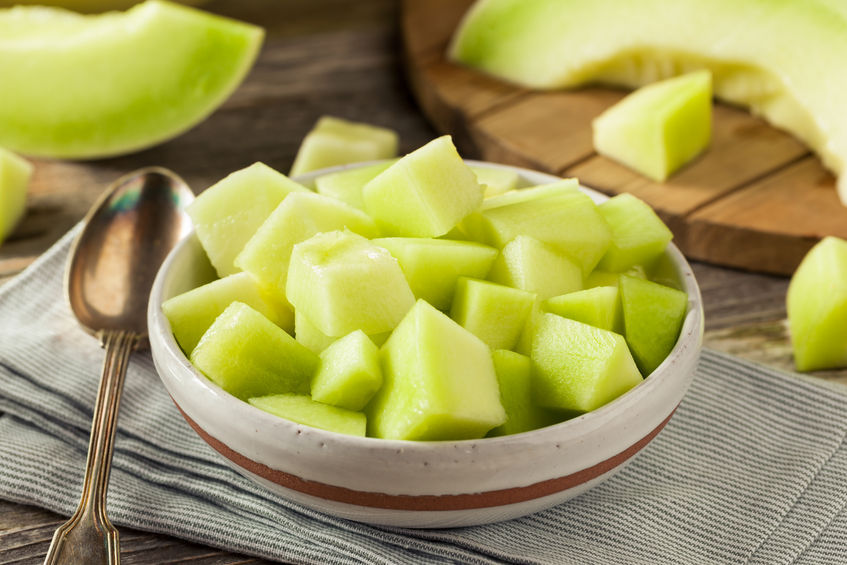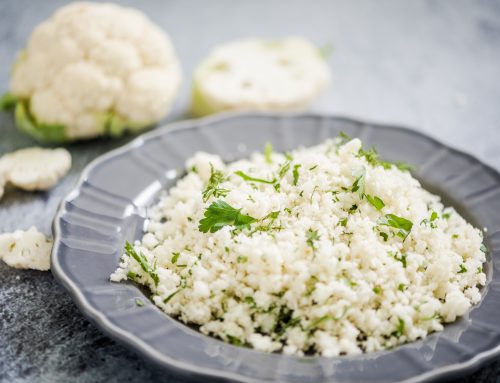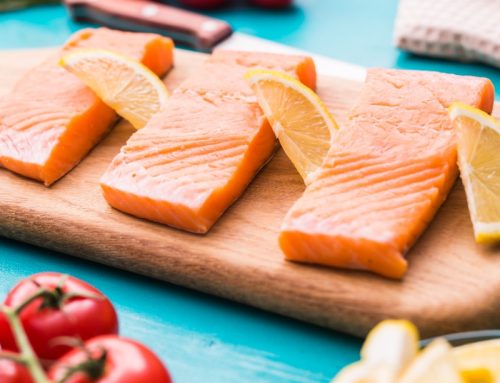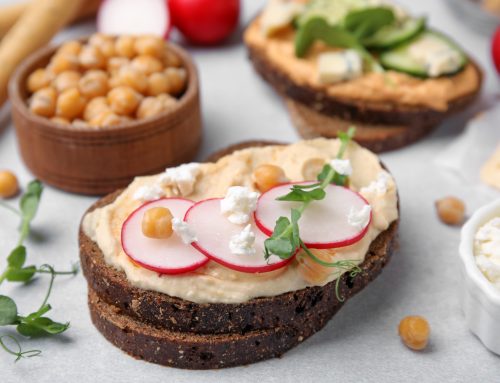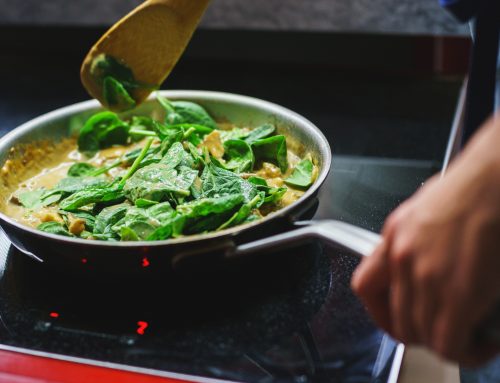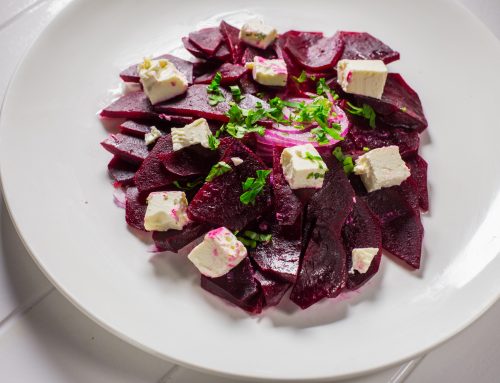Do you want to reduce bloating but aren’t sure where to start? Feeling bloated is annoying and uncomfortable. When you feel puffy, whether it’s due to a high sodium meal or to hormonal fluctuations, you feel “blah” all over.
I often say that “food is medicine,” so here are some healthy snacks that will help the bloating dissipate sooner rather than later, allowing you to breathe freely again.
Snacks That Reduce Bloating and Water Retention
Here are some nutritionist-approved snacks from Carolyn Williams, PhD, RD, to reduce bloating fast and feel like yourself again.
These food help get the digestive tract running smoothly and restore fluid balance in the body.
Celery and peanut butter
Celery is low in calories, but the real benefit is its fiber and high water content. Snack on celery sticks—or other water-filled veggies like cucumber slices or cherry tomatoes—to help your body rehydrate. Their fiber also helps get the digestive tract running smoothly without the potential for additional bloating or gas that cruciferous veggies sometimes cause. Top celery sticks with peanut or nut butter for satiety.
Banana
Potassium is the electrolyte counterpart to sodium, and it plays a role in helping the kidneys excrete excess sodium and water in the body. While most know to cut back on sodium and to increase water intake, many don’t realize that increasing potassium intake is just as important. Bananas are one of the best quick and portable sources of potassium—one medium banana provides approximately 12% of your daily needs. Just like celery, pair it with almond or nut butter to keep you full.
Unsalted nuts
Nuts such as almonds and cashews are good sources of magnesium, a mineral that has been linked to possibly reducing water retention associated with PMS. It’s the satiety factor (thanks to the combo of healthy fats and a little protein) that many find even more beneficial to help keep appetite and carb cravings in-check—especially when getting back into the swing of healthy eating.
Melons
All melons contain a higher percentage of water than other fruits, so cubes of ripe melon are a great snack option. One cup of cubed honeydew or cantaloupe is around 60 calories and provides over 50% of daily Vitamin C needs, plus potassium that’s comparable to a medium banana.
Yogurt
Eating yogurt with live bacteria cultures can help with bloating today, but eating it regularly establishes a healthy balance of bacteria in the intestines (potentially making them less susceptible to irritation when you stray from your normal diet in the future). Yogurt also provides a non-starchy source of carbs, protein, and calcium—another electrolyte involved in fluid balance.
Hard-boiled eggs
Focusing on lean proteins and vegetables is an eating approach I use when feeling bloated or puffy, but portable snack options are limited often to yogurt and nuts. Hard-boiled eggs are an easy, protein-based snack to prepare at the beginning of the week to keep in the fridge. No time to boil water? Look for packaged eggs that are already boiled and ready to eat.
Pineapple and Papaya
Pineapple contains bromelain, an enzyme that potentially aids in protein digestion and as a possible treatment for some digestive distress. Papaya also contains a similar enzyme that some cite for digestive soothing. While the research is pretty limited when it comes to both, it doesn’t hurt to squeeze in a serving or two of the fruits since both are great sources of Vitamin C, potassium, and fiber.
Green Tea
Research suggests green tea may have a slight diuretic effect in the body, and whether it helps flush water or not, it definitely rehydrates the body and provide antioxidants. You can’t go wrong with a cup of green tea—just keep tabs on caffeine intake since levels can vary among brands and types of tea.
Infused Water
Lemon water is often pushed to “detox” the body, but there’s actually little to research to suggest that citrus in water has much effect. I will admit that infusing lemon or other fruit does give water a flavor that makes it seem a little healthier, so if adding fruit to your water bottle helps you up your intake, then go for it. What’s essential is that you take in plenty of water and fluids through the day—plain or infused.
What to Avoid
A few other things to consider avoiding for the day since they can add to bloating or water retention in some individuals are carbonated drinks; cruciferous vegetables like broccoli; beans; starchy carbohydrate foods; and higher-sodium foods like processed foods and take-out.
Top of Form
Click here to read full article about how to reduce bloating with healthy snacks.


